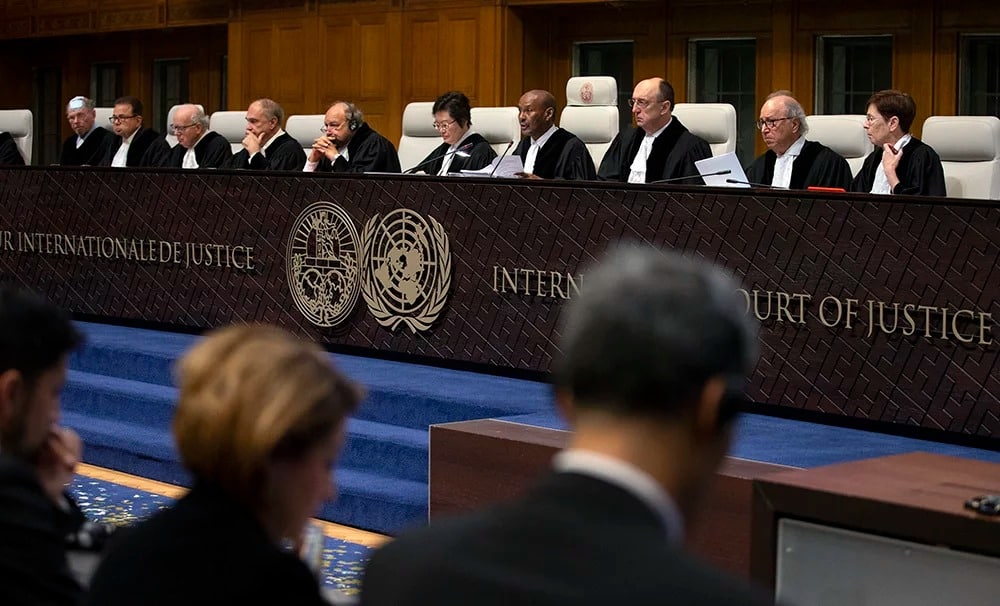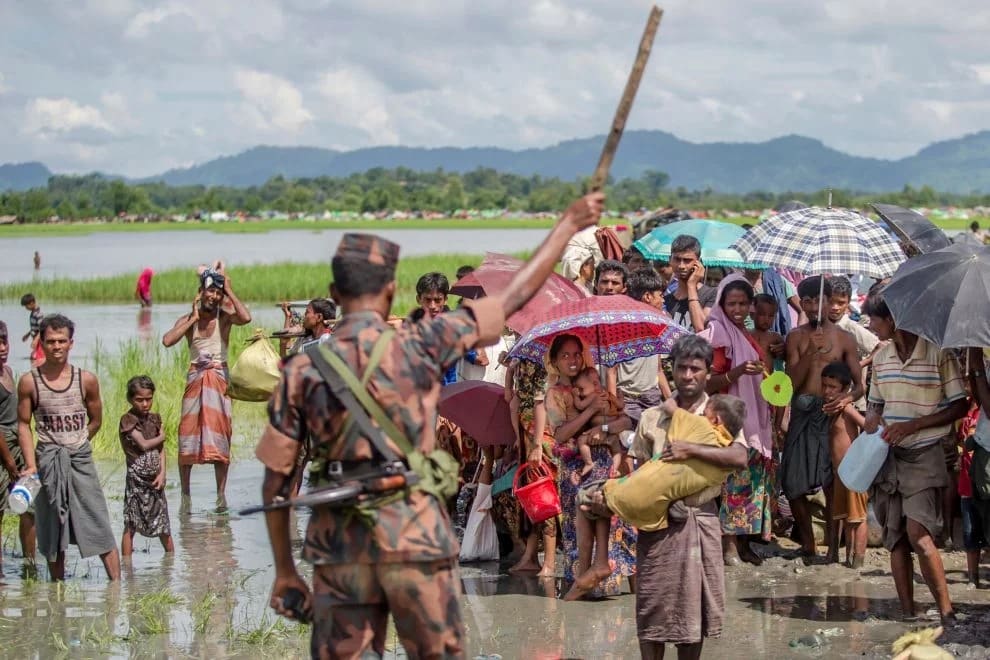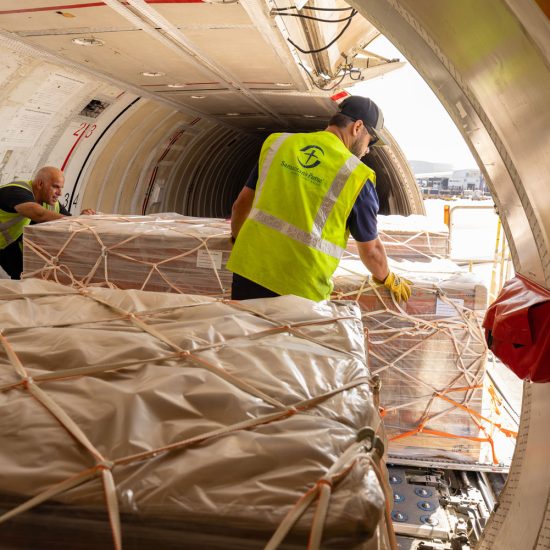

Presiding Judge Abdulqawi Ahmed Yusuf, fourth from right, starts reading a ruling at the International Court in The Hague, Netherlands, on Jan. 23, 2020. The United Nations’ top court ordered Myanmar to take all measures in its power to prevent genocide against the Rohingya. The court issued the decision on a request by Gambia. (AP Photo/Peter Dejong)
(RNS) — The United Nations’ top court has ordered the government of Myanmar to take urgent measures to prevent genocide against the Rohingya, a Muslim minority in the majority-Buddhist country.
The ruling comes more than two years after Myanmar’s military led a brutal crackdown against the Rohingya and forced over 700,000 refugees to flee to neighboring Bangladesh.
The unanimous ruling from the International Court of Justice in The Hague, Netherlands, demands that the Myanmar government prevent any genocidal acts and preserve all evidence of state-led atrocities against the minority, including murder, torture, rape and arson.
“The ICJ order to Myanmar to take concrete steps to prevent the genocide of the Rohingya is a landmark step to stop further atrocities against one of the world’s most persecuted people,” said Param-Preet Singh, associate international justice director at Human Rights Watch. “Concerned governments and U.N. bodies should now weigh in to ensure that the order is enforced as the genocide case moves forward.”
The legally binding provisional measures, pending a full case, come in response to a case brought in November by Gambia, alleging Myanmar’s government committed “genocidal acts” intended to “destroy” the Rohingya minority during a deadly 2017 military campaign.
Gambian officials brought the case on behalf of the Organization of Islamic Cooperation, a coalition of 57 Muslim-majority states. In a statement, the OIC welcomed the ruling and urged the international community to “redouble all diplomatic and political endeavors to ensure the safety and protection of the Rohingya Muslim minority.”
Activists around the world working for Rohingya rights lauded the ruling.
“It is a great day for those fighting to prevent genocide in the world,” said Imam Malik Mujahid, who heads the Burma Task Force in Chicago. (Myanmar was formerly known as Burma.) ” … The world must now ensure that Burma abides by this ruling. Burma and Bangladesh must both allow Rohingya the right to education, the right to earn a living and the right to travel freely as soon as possible.”

A Bangladesh border guard soldier stops newly arrived Rohingya Muslims, who crossed over from Myanmar into Bangladesh, from moving ahead toward refugee camps, at Palong Khali, Bangladesh, on Oct. 17, 2017. (AP Photo/Dar Yasin)
Mujahid said the ruling left Rohingya advocates’ “hearts renewed with hope.”
Should Myanmar fail to comply with the ruling, the ICJ decided, the court can send the case to the U.N. Security Council. Human rights advocates urged world governments and U.N. bodies to ensure that Myanmar’s government obeys the emergency measures.
The ruling ordered Myanmar’s government to report back on the steps it has taken within four months, and then again every six months after that.
The American Jewish World Service, which has advocated for Burmese minorities’ rights for more than 17 years, called the ICJ ruling an “important first step toward justice and accountability” for all those facing ethnic and religious persecution in the country.
“Let’s not forget: This is also a victory for other ethnic minority groups in Myanmar who have suffered at the hands of their country’s military for decades,” said Tracey Gurd, senior director of civil and political rights and advocacy for the organization. “Any effort to hold the military accountable for their actions against Rohingya is a win for all.”
On Monday (Jan. 20), a commission in Myanmar told the country’s president it found no evidence of genocidal intent in its inquiry into Rohingya persecution.The commission, established by Myanmar’s government, said that Myanmar security forces may have been responsible for war crimes and “disproportionate use of force.”
Advocates have dismissed the report as insufficient.
The ICJ ruling cited the U.N. Human Rights Council’s independent 2018 fact-finding mission, which reported there were “reasonable grounds” to conclude that genocide had been committed, that genocidal intent had been present and that the extreme anti-Rohingya violence in 2016 and 2017 was the result of the “systemic oppression and persecution of the Rohingya,” including denial of Rohingya individuals’ legal status, identity and citizenship.
A 2019 report by the mission found that the conditions that led to “killings, rapes and gang rapes, torture, forced displacement and other grave rights violations” by Myanmar security forces are largely still in place. It also suggested that “there is a serious risk that genocidal actions may occur or recur” against the country’s dwindling Rohingya population.
“An estimated 600,000 Rohingya who remain there are routinely and systematically denied their most basic rights,” said Nicholas Bequelin, Amnesty International’s regional director. “They face a real risk of further atrocities. … Until all those responsible for serious violations — including those with command responsibility — are held to account, these atrocity crimes will remain rampant.”






